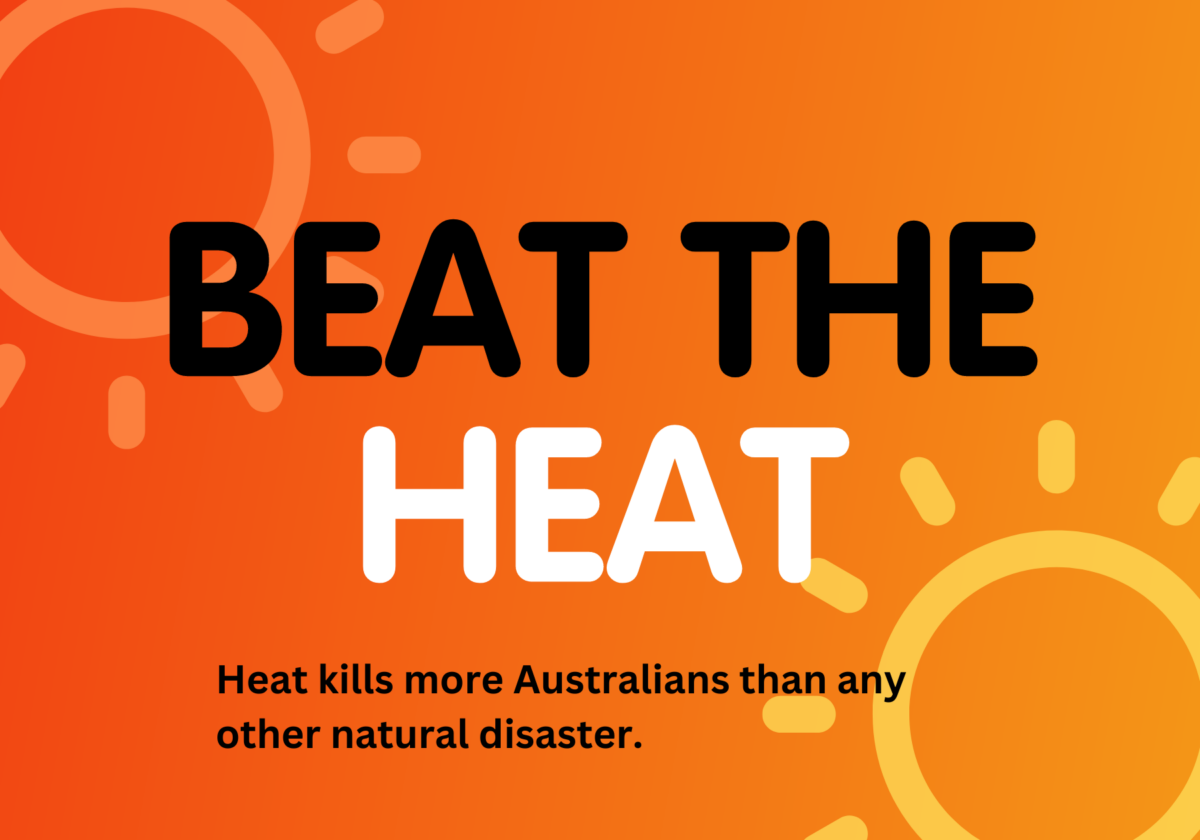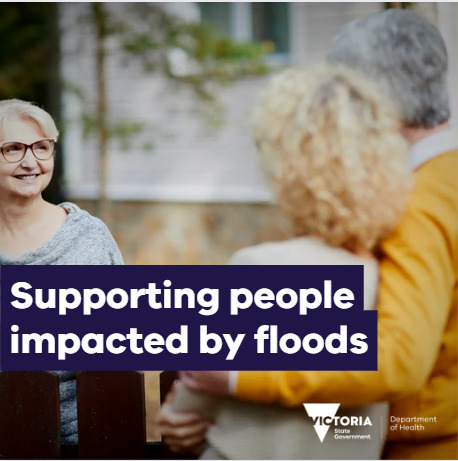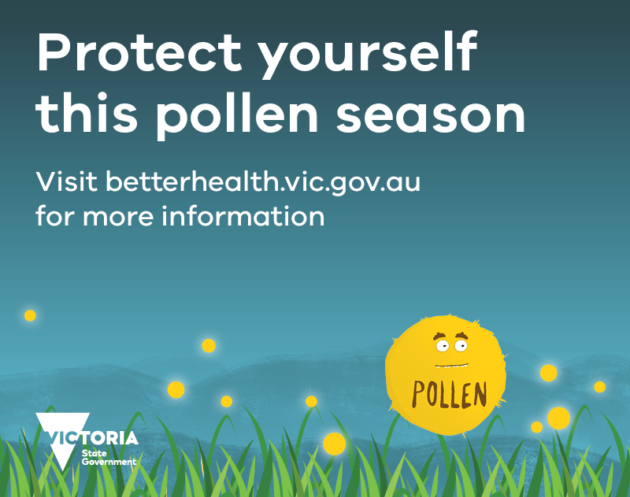

Environmental health
Beat the heat this summer
Heat kills more Australians than any natural disaster. Extreme heat can affect anybody and can lead to the life-threatening condition, heatstroke.
Summer is a great time to get outdoors and enjoy warmer weather, but extreme heat – or heatwaves – can be life-threatening for some people.
A heatwave occurs when both the high and low forecast temperatures are unusually hot over a 3-day period at a location. This is based on the average temperature in the area.
You can beat the heat with these 5 simple steps:
- Drink water
- keep a full drink bottle with you and take small sips of water often.
- Hot cars kill
- never leave children, adults or pets in cars – the temperature can double in minutes.
- Stay cool
- try to spend time in cool or air-conditioned buildings (shopping centres, libraries or community centres)
- stay out of the sun during the day where possible
- keep yourself cool by using damp towels containing ice, putting your feet in cool water and taking cool (not cold) showers.
- Plan ahead
- check the Bureau of Meteorology heat warnings regularly
- where possible, plan activities for the coolest part of the day
- stock up on food, water and medicines so you don’t have to go out in the heat.
- Check in on others
- look after those most at risk in the heat – your neighbour living alone, older people, young children, people with a medical condition and pets
- call or visit family and friends who may need help on an extreme heat day
- if you observe symptoms of heat-related illness, seek medical attention immediately.
Know the signs of heat-related illness
Heat can cause illnesses such as heat cramps and heat exhaustion which can lead to the life-threatening condition, heatstroke. Heatstroke is fatal in up to 80% of cases.
Heat can also worsen the condition of someone who already has a medical issue such as heart disease or diabetes. Most reported illness and death is due to the effect of heat on those who are already ill.
Heat cramps
Symptoms:
- muscle pains
- spasms in the abdomen, arms or legs.
What to do:
- stop activity and sit in a cool place
- drink cool water
- rest a few hours before returning to activity
- see a doctor if cramps persist.
Heat exhaustion
Symptoms:
- sweating
- pale complexion
- rapid pulse
- muscle cramps, weakness
- dizziness, headache
- nausea, vomiting
- fainting.
What to do:
- go to a cool area and lie down
- fan if possible
- drink cool water if not vomiting
- remove outer clothing
- wet skin with cool water or wet cloths
- see a doctor or call 000.
Heat stroke
Heat stroke is a life-threatening emergency – call 000
Symptoms:
- very high body temperature
- red, hot, dry skin (no sweating)
- dry swollen tongue
- rapid pulse
- dizziness
- headache
- nausea, vomiting
- collapse
- seizure
- loss of consciousness.
What to do:
- Immediately call Triple Zero (000) for an ambulance.
- While waiting for emergency medical help, get the person to a cool shady area and lay them down.
- Remove excess clothing and wet their skin with water or wrap in wet cloths, fanning continuously.
- Give the person cool water to drink if conscious and able to swallow. Otherwise, do not give the person fluids to drink.
- Position an unconscious person on their side and ensure they are breathing normally. If needed, perform CPR
- Monitor their body temperature where possible and continue cooling efforts until the body temperature drops below 38 °C. Recommence cooling efforts if their temperature begins to rise again.
- Wait for the ambulance to urgently transport the person to hospital, where more intensive cooling and support can be given.
- Seek further instructions from Triple Zero, ambulance or hospital emergency staff, while waiting for the ambulance.
Hot weather can affect anyone, including the young and healthy. However, some people are more at risk than others.
People most at risk:
- are aged over 65 years, especially those living alone
- have a medical condition such as heart disease, diabetes, kidney disease or mental illness
- are taking certain medications that may affect the way the body reacts to heat as a side effect (Includes but is not limited to, medication that is used to treat allergies, blood pressure, heart conditions, seizure disorders and mental health conditions. Speak to your doctor to discuss this.)
- those using alcohol or drugs
- living with a cognitive impairment that reduces their ability to communicate their discomfort and needs
- limited mobility
- pregnant women and breastfeeding mothers
- babies and young children
- are overweight or obese
- work or exercise outdoors
- have recently arrived from cooler climates.
It’s important to stay aware of upcoming risks of heatwaves or days of high UV. For more information on weather conditions, see:
- Victorian seven-day forecast – Bureau of Meteorology
- Heatwave forecast – Bureau of Meteorology
- UV alert – Cancer Council.
You can also register to get Heat Health Warnings from the Department of Health.



